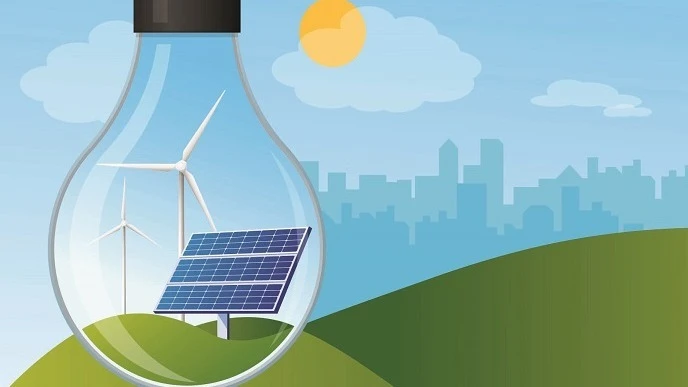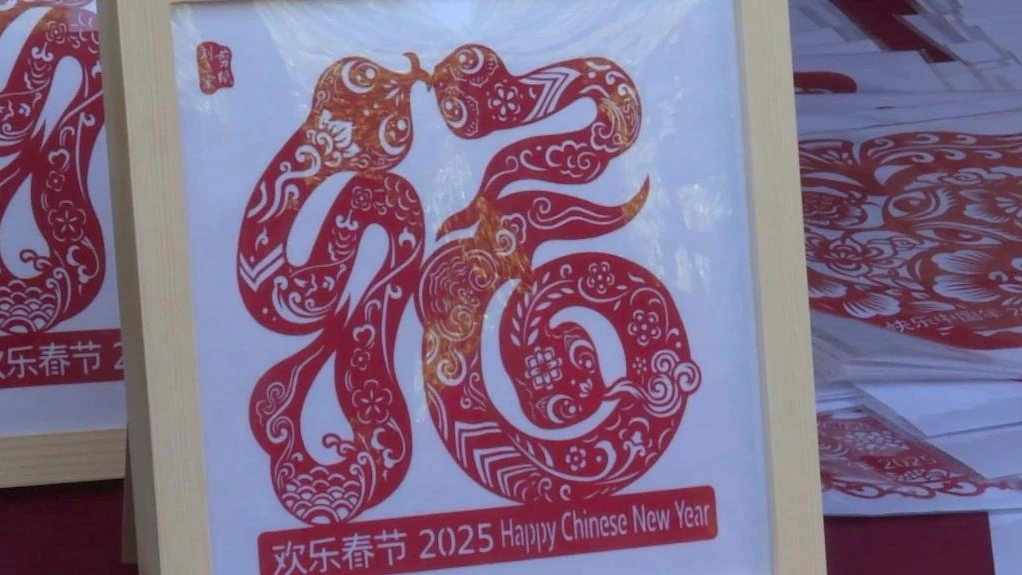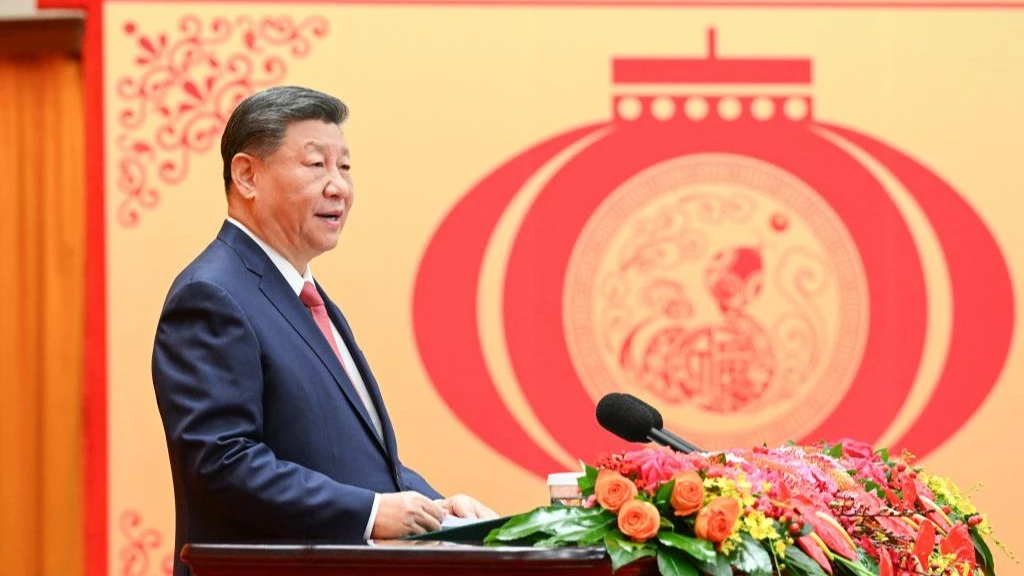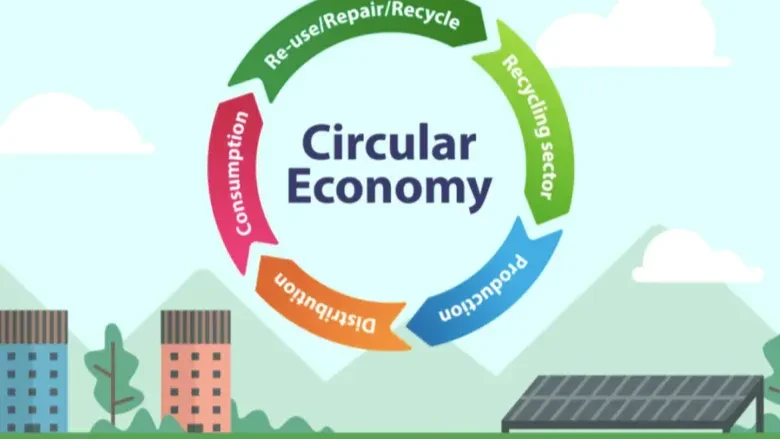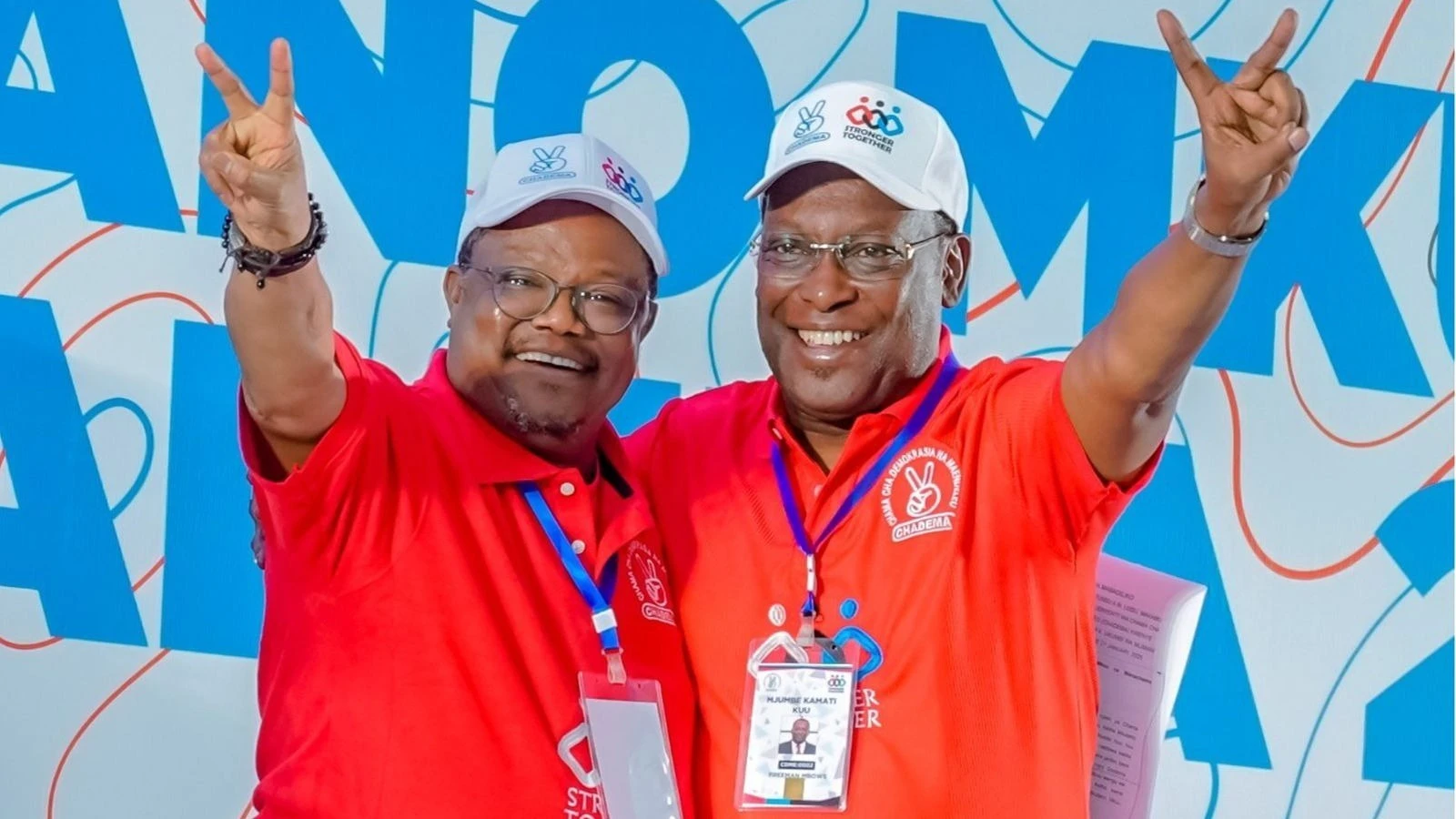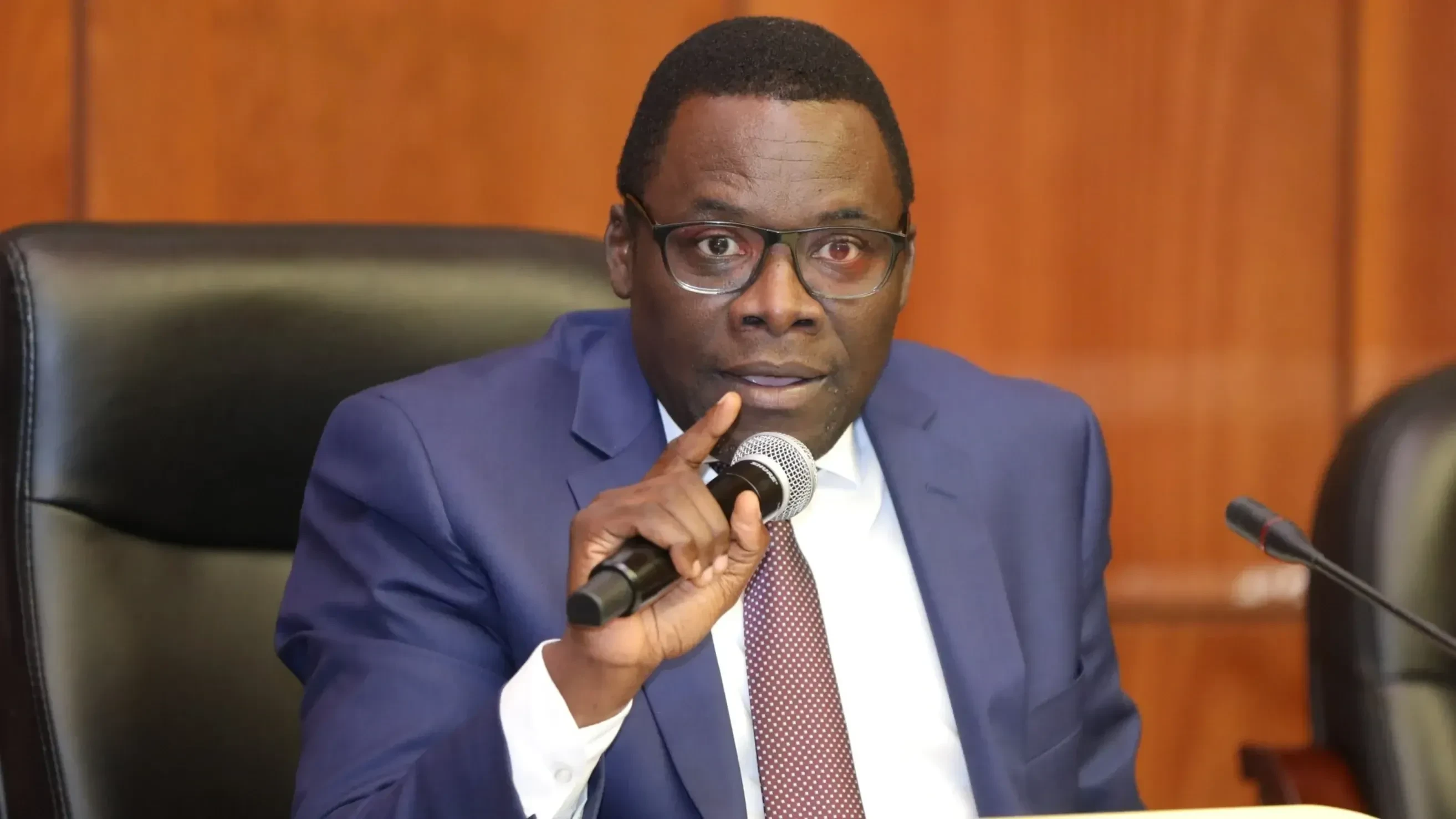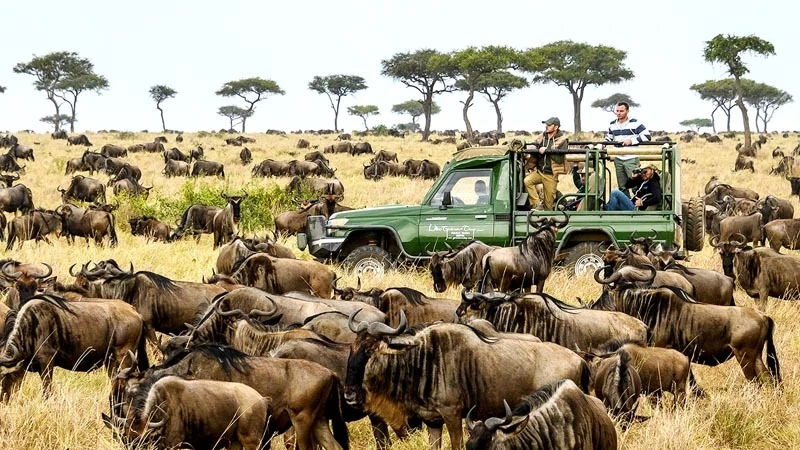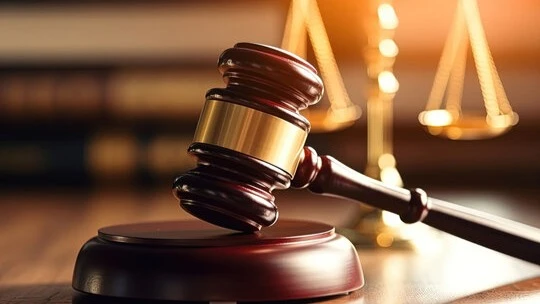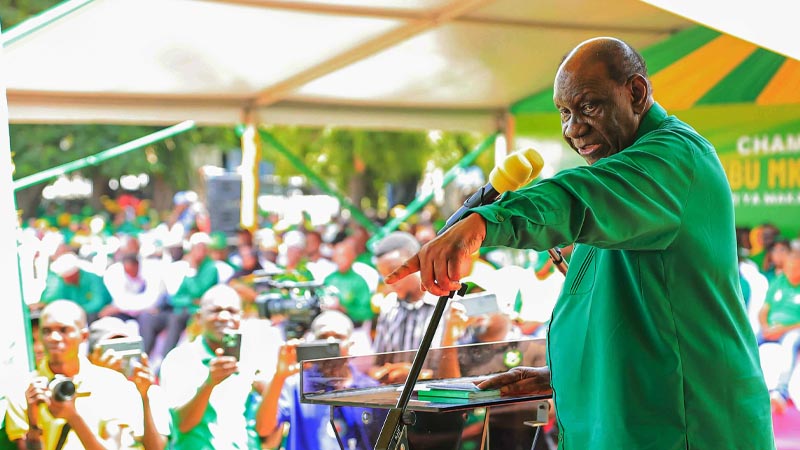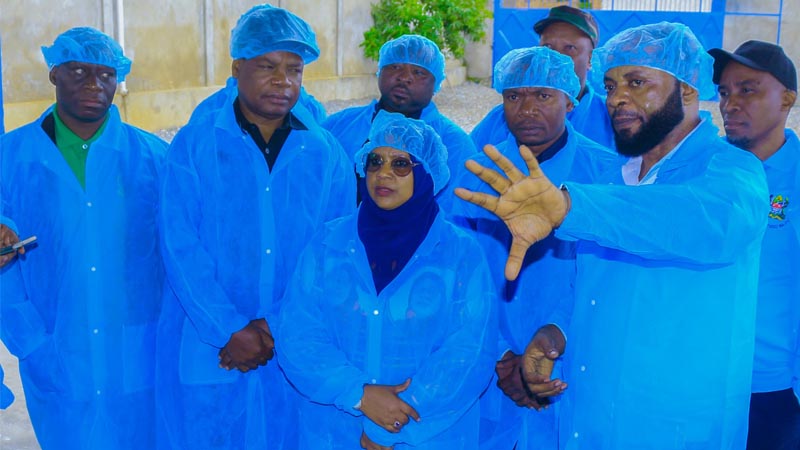US withdrawal from WHO: Need for Africa to step up boldly
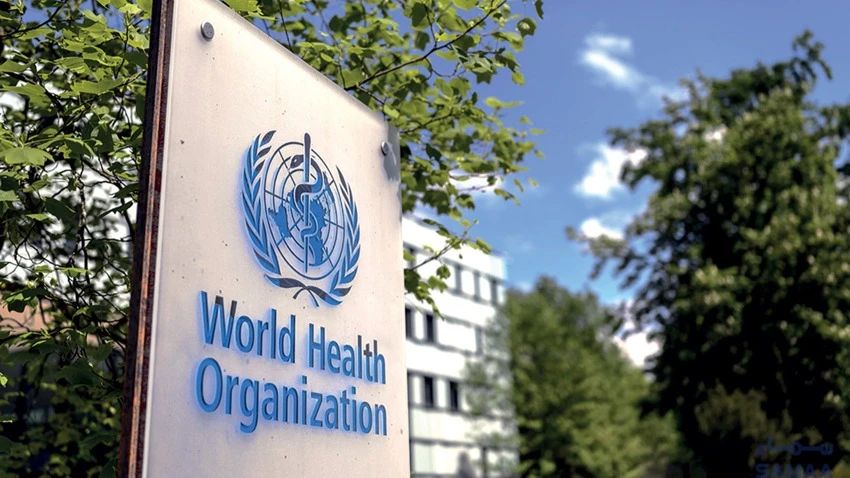
CHAIRPERSON of the African Union Commission Moussa Faki Mahamat on January 21, 2025, delivered a sharp and poignant critique of the United States' unexpected decision to withdraw from the World Health Organisation (WHO).
Describing the move as a monumental setback to global health security, Mahamat emphasized the far-reaching consequences for international cooperation and regions like Africa, which heavily depend on collective efforts to combat pandemics and strengthen fragile health systems.
Calling the move a blow to global health security, Mahamat highlighted the implications for regions like Africa, which heavily depend on international partnerships to address pandemics and other public health challenges.
For over seven decades, the US has been a cornerstone of WHO support, helping shape global health strategies. Its exit sends shockwaves through the international health community.
"The USA has been instrumental in supporting the Africa CDC and the WHO in preparing for, responding to, and recovering from pandemics," Mahamat stated.
He warned that the withdrawal could undo years of progress in strengthening health systems across Africa and beyond. Social media has been ablaze with reactions, with Euphrasia Makata, a prominent voice online, saying, “African leaders, it’s time to get serious. Start funding the AU and our African health organisations. We need visionaries who act, not beggars.”
The US decision aligns with a broader trend under Trump’s administration, which has focused on scaling back involvement in global institutions.
The country has also exited the Paris Climate Agreement, reduced financial commitments to NATO, and pulled funding from UN sub-organisations such as UNHCR and UNDP. While this strategy reflects an "America First" approach, critics view it as a retreat from the global stage.
Analysts believe African leaders should take this as a wake-up call. “Trump’s decision is not surprising,” remarked Peter Maina, a political observer.
“His administration is prioritising domestic challenges and low prioritising global organisations. African leaders must stop expecting perpetual funding from the West. This is a moment to shift towards African solutions to African problems.”
Others on social media pointed out contradictions within the US itself. Wisdom Onyeka commented, “The US struggles with issues like mass incarceration, gun violence, and broken family systems. Perhaps stepping back from global responsibilities will help them focus on fixing their challenges, while Africa uses this opportunity to step up.”
The withdrawal raises urgent questions about Africa’s dependency on donor funding from Western nations. For decades, international assistance has sustained key health initiatives, infrastructure, and trade agreements. The US departure from the WHO underlines the fragility of this reliance, challenging African leaders to take greater responsibility for the continent’s future.
Chairperson Mahamat urged the US to reconsider its decision, stressing that public health is a shared global good that transcends borders.
However, he also emphasised the need for African nations to step up and fund their health organisations to ensure long-term sustainability. Euphrasia Makata’s online post resonated widely, declaring, “We need to stop begging. The AU and Africa’s health institutions must rise to the occasion. This is a blessing in disguise if only we use it to build stronger, self-funded systems.”
Many see this as a defining moment for Africa. The shifting geopolitical landscape requires innovative solutions and regional collaboration. Hon. Maina added, “The world is moving into a multipolar order where Africa must prioritise independence. Our leaders need to act swiftly to ensure we can handle our challenges without waiting for external aid.”
The United States’ abrupt decision to withdraw from the World Health Organization (WHO) has sent shockwaves through the global health community, drawing sharp reactions from leaders, experts, and citizens across the globe. While some view this move as a crippling blow to international public health efforts, others see it as a wake-up call for self-reliance, especially for Africa.
The announcement, delivered amidst ongoing challenges in global health, has raised alarms over the potential fallout. As the largest donor to WHO, contributing $1.284 billion during the 2022–2023 biennium, the US has been a driving force in emergency response, disease prevention, and health system strengthening across vulnerable regions. Its withdrawal threatens to destabilize programs that rely heavily on its funding and expertise.
The African Union (AU) Chairperson Moussa Faki Mahamat expressed deep concern, calling the US exit “a significant setback to global health security.”
He emphasized that the US has been instrumental in supporting Africa’s fight against pandemics, citing its role in establishing the Africa CDC and working with WHO to contain outbreaks such as Ebola, mpox, and Marburg virus disease.
“This decision undermines decades of progress. The world depends on the WHO to protect our collective health,” Mahamat said.
However, social media reactions tell a more complex story. While many voiced dismays, others framed the withdrawal as an opportunity for Africa to chart its course.
Wisdom Onyeka, a vocal advocate for self-reliance, remarked, “If the US wants to focus on its issues, so be it. Africa must take control of its destiny and reduce its dependency.” This sentiment has reignited conversations about the AU’s financial strategies, with growing calls to shift from reliance on Western donors to developing homegrown solutions.
The AU now finds itself at a crossroads. With the US scaling back funding not only for WHO but also for other global initiatives like climate agreements and NATO, the message is clear: Africa must build resilience and prioritize regional cooperation. “This is a wake-up call,” Mahamat stated. “By investing in our initiatives, we can secure our people’s health regardless of external developments.”
The implications of the US decision extend far beyond Africa. The WHO, already strained by funding challenges, faces a daunting future without its top donor.
The US has historically been a cornerstone of WHO’s emergency response efforts, including its critical role in halting the mpox outbreak in the Democratic Republic of Congo and neighboring countries.
Between March 2024 and today, the US contributed over $22 million to mpox response efforts, funding vaccine delivery and capacity building in six African nations.
In Rwanda, the US partnered with WHO to combat the Marburg virus outbreak through enhanced surveillance and public health communication.
Experts from the US also played a vital role in WHO’s Joint External Evaluation missions, helping countries strengthen their health security systems under the Global Health Security Agenda. These initiatives have saved countless lives and bolstered global preparedness against emerging threats.
But the withdrawal signals a dramatic shift. Critics argue that this move could embolden other nations to reconsider their financial commitments, leaving the WHO’s ability to respond to global crises severely weakened. “The US has been more than a donor; it has been a partner in safeguarding global health,” said one WHO official.
For Africa, the path forward is clear but challenging. The continent has long depended on foreign aid for health security, but experts argue that the time has come to invest in local solutions. Mahamat’s call for self-reliance has been echoed by leaders across the region, with some advocating for innovative financing mechanisms and stronger intra-African cooperation to reduce dependency on external donors.
The coming weeks will be critical as global leaders prepare for emergency discussions on the implications of the US decision. Africa must now decide whether to view this moment as a crisis or an opportunity to reshape its future. As one commentator put it, “This is a defining moment. Africa’s response will either cement its place as a global health leader or keep it tethered to external aid.”
The US withdrawal from WHO is more than a political statement—it’s a seismic shift in global health dynamics. For Africa, it’s a call to action, a challenge to build resilience, and an opportunity to redefine its trajectory. The world will be watching.
Top Headlines
© 2025 IPPMEDIA.COM. ALL RIGHTS RESERVED











